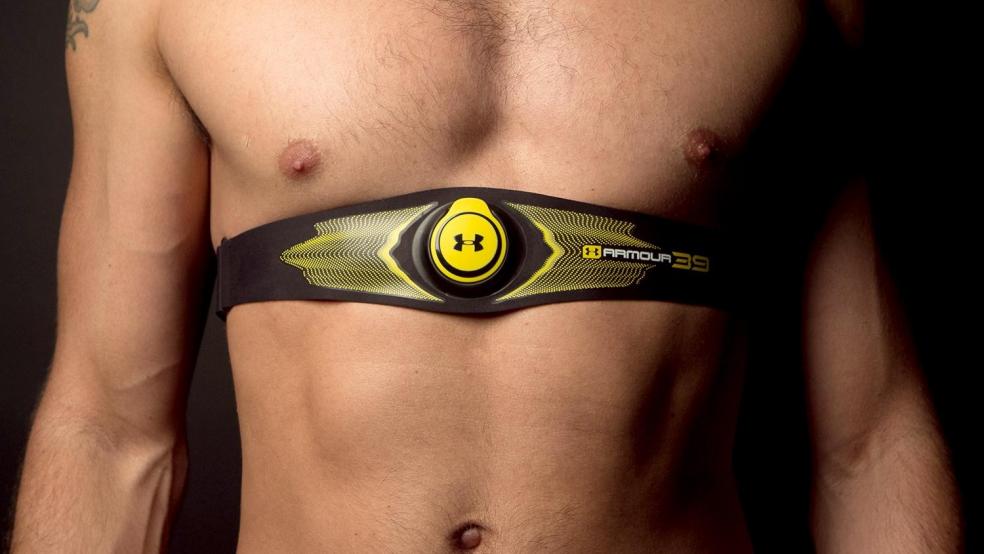What happens in Vegas may stay in Vegas, but if the world's biggest tech companies and a mob of start-ups have their way, what happens in your body may soon be ready for general broadcast.
The 2014 Consumer Electronics Show kicked off this week in Las Vegas, and one of the hot topics is "wearable" technology: that is, gadgetry that attaches in some fashion to your person and captures an array of biometric data — ostensibly for your eyes only, but in the age of Facebook, Instagram and Twitter, also potentially for sharing. Such wearable tech already available or on the horizon includes:
- A chest strap by Under Armour that tracks a user's heart rate, calories burned, and "real time intensity," all fed into an algorithm that generates a number the athletic apparel company has trademarked as "WILLpower."
- An activity tracker from Sony that pairs up with an Android app called Lifelog to keep tabs on “everything you do from the time you wake up to the end of your day,” as Sony’s promotional video puts it. That’s everything – from sleeping to phone calls to movie-watching to social activities.
- A Microsoft designed bra that measures a woman's electrodermal and electrocardiogram activity (sweat generation and heart data, respectively) in an attempt to identify and curb the emotional triggers that can lead to overeating.
- A clip-on camera by a start-up called Narrative that's worn on the user's shirt collar or lapel. The matchbook-sized camera automatically takes two "geo-tagged" snapshots every sixty seconds, creating "a continuous life log for the user."
For the moment, the public relations and marketing rhetoric for these products touts the benefits for the user alone – most often, that the data generated will give the wearer actionable health intelligence. But we have become very much a social sharing society over the past decade, and have gotten used to revealing our personal information on the web. As such, this potential raft of personal biometric and other data from wearable tech may prove irresistible to posting by the technologically hip.
Related: Mobile Devices More Vulnerable to Hacking
I already have a friend who regularly posts to Facebook the miles he's walked in his effort to lose weight. There's nothing inherently wrong with this, and perhaps the posting of his exercise routine helps him stay focused and accountable in his efforts. Still, it's not something everyone is comfortable doing themselves or necessarily feels the need to hear about from others.
So if you think some of your friends and relatives are already sharing far too much about their personal lives on Facebook, Twitter or Instagram, brace yourself for even more information you never asked for, like your second cousin bragging about his WILLpower score. Or your officemate's sweat-generation rate. How about a minute-by-minute photographic account of your pregnant sister's visit to the gynecologist?
It might be time to get serious about that New Year's resolution to spend less time on social media.
Top Reads from The Fiscal Times:




